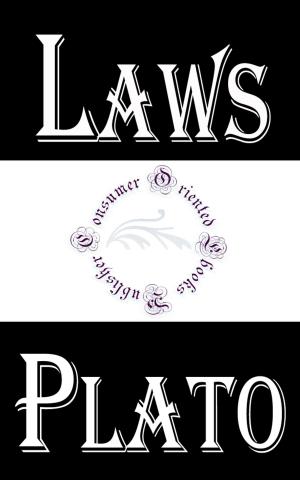| Author: | James Fenimore Cooper | ISBN: | 1230000276872 |
| Publisher: | Consumer Oriented Ebooks Publisher | Publication: | October 27, 2014 |
| Imprint: | Language: | English |
| Author: | James Fenimore Cooper |
| ISBN: | 1230000276872 |
| Publisher: | Consumer Oriented Ebooks Publisher |
| Publication: | October 27, 2014 |
| Imprint: | |
| Language: | English |
It is an old remark, that the life of any man, could the incidents be faithfully told, would possess interest and instruction for the general reader. The conviction of the perfect truth of this saying, has induced the writer to commit to paper, the vicissitudes, escapes, and opinions of one of his old shipmates, as a sure means of giving the public some just notions of the career of a common sailor. In connection with the amusement that many will find in following a foremast Jack in his perils and voyages, however, it is hoped that the experience and moral change of Myers may have a salutary influence on the minds of some of those whose fortunes have been, or are likely to be, cast in a mould similar to that of this old salt.
As the reader will feel a natural desire to understand how far the editor can vouch for the truth of that which he has here written, and to be informed on the subject of the circumstances that have brought him acquainted with the individual whose adventures form the subject of this little work, as much shall be told as may be necessary to a proper understanding of these two points.
First, then, as to the writer's own knowledge of the career of the subject of his present work. In the year 1806, the editor, then a lad, fresh from Yale, and destined for the navy, made his first voyage in a merchantman, with a view to get some practical knowledge of his profession. This was the fashion of the day, though its utility, on the whole, may very well be questioned. The voyage was a long one, including some six or eight passages, and extending to near the close of the year 1807. On board the ship was Myers, an apprentice to the captain. Ned, as Myers was uniformly called, was a lad, as well as the writer; and, as a matter of course, the intimacy of a ship existed between them. Ned, however, was the junior, and was not then compelled to face all the hardships and servitude that fell to the lot of the writer.
Once, only, after the crew was broken up, did the writer and Ned actually see each other, and that only for a short time. This was in 1809. In 1833, they were, for half an hour, on board the same ship, without knowing the fact at the time. A few months since, Ned, rightly imagining that the author of the Pilot must be his old shipmate, wrote the former a letter to ascertain the truth. The correspondence produced a meeting, and the meeting a visit from Ned to the editor. It was in consequence of the revelations made in this visit that the writer determined to produce the following work.
The writer has the utmost confidence in all the statements of Ned, so far as intention is concerned. Should he not be mistaken on some points, he is an exception to the great rule which governs the opinions and recollections of the rest of the human family. Still, nothing is related that the writer has any reasons for distrusting. In a few instances he has interposed his own greater knowledge of the world between Ned's more limited experience and the narrative; but, this has been done cautiously, and only in cases in which there can be little doubt that the narrator has been deceived by appearances, or misled by ignorance. The reader, however, is not to infer that Ned has no greater information than usually falls to the share of a foremast hand. This is far from being the case. When first known to the writer, his knowledge was materially above that of the ordinary class of lads in his situation; giving ample proof that he had held intercourse with persons of a condition in life, if not positively of the rank of gentlemen, of one that was not much below it. In a word, his intelligence on general subjects was such as might justly render him the subject of remark on board a ship. Although much of his after-life was thrown away, portions of it passed in improvement; leaving Ned, at this moment, a man of quick apprehension, considerable knowledge, and of singularly shrewd comments. If to this be added the sound and accurate moral principles that now appear to govern both his acts and his opinions, we find a man every way entitled to speak for himself; the want of the habit of communicating his thoughts to the public, alone excepted.
In this book, the writer has endeavoured to adhere as closely to the very language of his subject, as circumstances will at all allow; and in many places he feels confident that no art of his own could, in any respect, improve it.
It is probable that a good deal of distrust will exist on the subject of the individual whom Ned supposes to have been one of his god-fathers. On this head the writer can only say, that the account which Myers has given in this work, is substantially the same as that which he gave the editor nearly forty years ago, at an age and under circumstances that forbid the idea of any intentional deception. The account is confirmed by his sister, who is the oldest of the two children, and who retains a distinct recollection of the prince, as indeed does Ned himself. The writer supposes these deserted orphans to have been born out of wedlock--though he has no direct proof to this effect--and there is nothing singular in the circumstance of a man of the highest rank, that of a sovereign excepted, appearing at the font in behalf of the child of a dependant. A member of the royal family, indeed, might be expected to do this, to favour one widely separated from him by birth and station, sooner than to oblige a noble, who might possibly presume on the condescension.
It remains only to renew the declaration, that every part of this narrative is supposed to be true. The memory of Ned may occasionally fail him; and, as for his opinions, they doubtless are sometimes erroneous; but the writer has the fullest conviction that it is the intention of the Old Salt to relate nothing that he does hot believe to have occurred, or to express an unjust sentiment. On the subject of his reformation, so far as "the tree is to be known by its fruits" it is entirely sincere; the language, deportment, habits, and consistency of this well-meaning tar, being those of a cheerful and confiding Christian, without the smallest disposition to cant or exaggeration. In this particular, he is a living proof of the efficacy of faith, and of the power of the Holy Spirit to enlighten the darkest understanding, and to quicken the most apathetic conscience.
It is an old remark, that the life of any man, could the incidents be faithfully told, would possess interest and instruction for the general reader. The conviction of the perfect truth of this saying, has induced the writer to commit to paper, the vicissitudes, escapes, and opinions of one of his old shipmates, as a sure means of giving the public some just notions of the career of a common sailor. In connection with the amusement that many will find in following a foremast Jack in his perils and voyages, however, it is hoped that the experience and moral change of Myers may have a salutary influence on the minds of some of those whose fortunes have been, or are likely to be, cast in a mould similar to that of this old salt.
As the reader will feel a natural desire to understand how far the editor can vouch for the truth of that which he has here written, and to be informed on the subject of the circumstances that have brought him acquainted with the individual whose adventures form the subject of this little work, as much shall be told as may be necessary to a proper understanding of these two points.
First, then, as to the writer's own knowledge of the career of the subject of his present work. In the year 1806, the editor, then a lad, fresh from Yale, and destined for the navy, made his first voyage in a merchantman, with a view to get some practical knowledge of his profession. This was the fashion of the day, though its utility, on the whole, may very well be questioned. The voyage was a long one, including some six or eight passages, and extending to near the close of the year 1807. On board the ship was Myers, an apprentice to the captain. Ned, as Myers was uniformly called, was a lad, as well as the writer; and, as a matter of course, the intimacy of a ship existed between them. Ned, however, was the junior, and was not then compelled to face all the hardships and servitude that fell to the lot of the writer.
Once, only, after the crew was broken up, did the writer and Ned actually see each other, and that only for a short time. This was in 1809. In 1833, they were, for half an hour, on board the same ship, without knowing the fact at the time. A few months since, Ned, rightly imagining that the author of the Pilot must be his old shipmate, wrote the former a letter to ascertain the truth. The correspondence produced a meeting, and the meeting a visit from Ned to the editor. It was in consequence of the revelations made in this visit that the writer determined to produce the following work.
The writer has the utmost confidence in all the statements of Ned, so far as intention is concerned. Should he not be mistaken on some points, he is an exception to the great rule which governs the opinions and recollections of the rest of the human family. Still, nothing is related that the writer has any reasons for distrusting. In a few instances he has interposed his own greater knowledge of the world between Ned's more limited experience and the narrative; but, this has been done cautiously, and only in cases in which there can be little doubt that the narrator has been deceived by appearances, or misled by ignorance. The reader, however, is not to infer that Ned has no greater information than usually falls to the share of a foremast hand. This is far from being the case. When first known to the writer, his knowledge was materially above that of the ordinary class of lads in his situation; giving ample proof that he had held intercourse with persons of a condition in life, if not positively of the rank of gentlemen, of one that was not much below it. In a word, his intelligence on general subjects was such as might justly render him the subject of remark on board a ship. Although much of his after-life was thrown away, portions of it passed in improvement; leaving Ned, at this moment, a man of quick apprehension, considerable knowledge, and of singularly shrewd comments. If to this be added the sound and accurate moral principles that now appear to govern both his acts and his opinions, we find a man every way entitled to speak for himself; the want of the habit of communicating his thoughts to the public, alone excepted.
In this book, the writer has endeavoured to adhere as closely to the very language of his subject, as circumstances will at all allow; and in many places he feels confident that no art of his own could, in any respect, improve it.
It is probable that a good deal of distrust will exist on the subject of the individual whom Ned supposes to have been one of his god-fathers. On this head the writer can only say, that the account which Myers has given in this work, is substantially the same as that which he gave the editor nearly forty years ago, at an age and under circumstances that forbid the idea of any intentional deception. The account is confirmed by his sister, who is the oldest of the two children, and who retains a distinct recollection of the prince, as indeed does Ned himself. The writer supposes these deserted orphans to have been born out of wedlock--though he has no direct proof to this effect--and there is nothing singular in the circumstance of a man of the highest rank, that of a sovereign excepted, appearing at the font in behalf of the child of a dependant. A member of the royal family, indeed, might be expected to do this, to favour one widely separated from him by birth and station, sooner than to oblige a noble, who might possibly presume on the condescension.
It remains only to renew the declaration, that every part of this narrative is supposed to be true. The memory of Ned may occasionally fail him; and, as for his opinions, they doubtless are sometimes erroneous; but the writer has the fullest conviction that it is the intention of the Old Salt to relate nothing that he does hot believe to have occurred, or to express an unjust sentiment. On the subject of his reformation, so far as "the tree is to be known by its fruits" it is entirely sincere; the language, deportment, habits, and consistency of this well-meaning tar, being those of a cheerful and confiding Christian, without the smallest disposition to cant or exaggeration. In this particular, he is a living proof of the efficacy of faith, and of the power of the Holy Spirit to enlighten the darkest understanding, and to quicken the most apathetic conscience.















